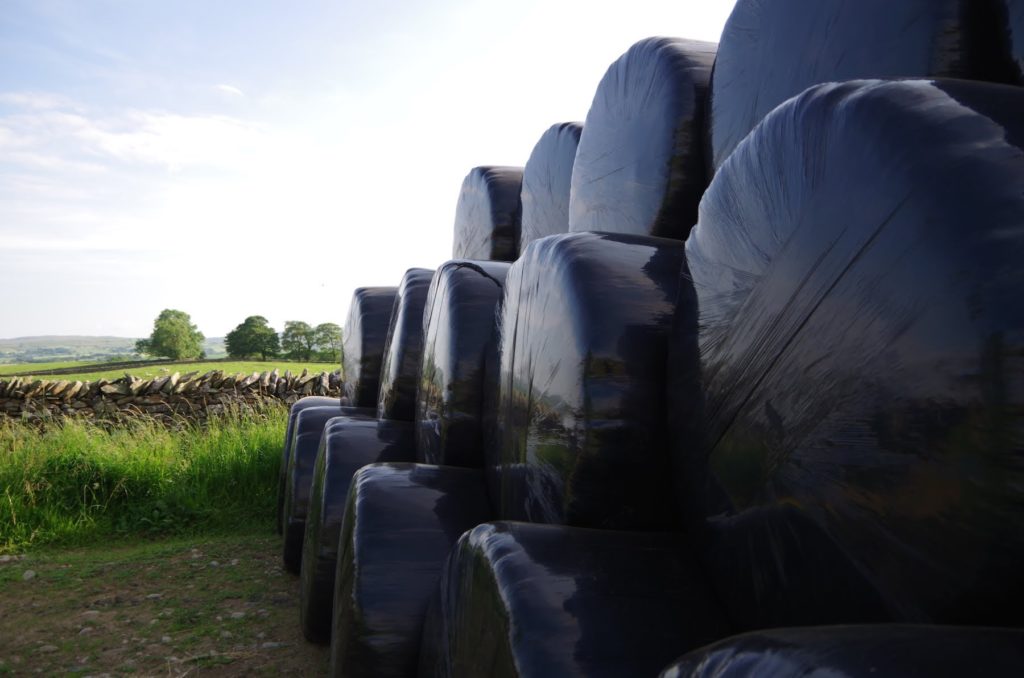Safety during Silage and Hay Making Season
2 July 2021With silage and hay making well underway, forage harvesters and tractors are at work up and down the country it’s important that farmers are vigilant with regards to safety. With fatal farm accidents at a 25-year high on UK farms farmers should make safety a priority during this busy period.
Check silage pits and effluent tanks for potential structural faults before, during and after the pit has been filled. Cracking and damage (to the concrete panels) and the floor can happen over time so it’s important to make sure that panels are in good condition prior to filling the clamp. Ensure people working in the clamp and compacting vehicles are aware of the correct safety procedures.
Farmers, contractors and farmer workers should all take extra care when handling bales of wrapped silage as collapsing and falling bales are one of the main causes of farm fatalities.
Key tips for safely handling and stacking bales include;
- Use properly designed and maintained bale handling equipment.
- If moving bales check that the load is stable (roping an unstable load will not make it safe) and bales are correctly and fully strapped on the trailer.
- Avoid overloading trailers or building stacks too high.
- Stack bales on a solid level well-drained base to avoid tractor ruts etc.
- Make sure there is sufficient space around the stack to allow tractors and other vehicles adequate space to manoeuvre.
- If possible build stacks away from areas where the public have access.
- Do not lift or stack bales higher than the capabilities of the handling equipment being used.
- Ensure that when carrying bales on a loader or telescopic handler that the drivers view is not obscured.
- Take extra care when stacking and de-stacking wrapped bales as the plastic wrapping can bales slippery.
- If stacking round silage bales, the safest stacking method is in a pyramid stack.
- The combination of bale wrap, rain and silage settling means the risk of bale movement is greater so never stack silage bales directly on top of one another.
- Do not stack bales more than 3 high. Bales with a low dry matter are recommended to be stored in a single layer as these are generally heavier. Also this prevents bales squashing under the weight and rupturing the plastic wrap affecting silage quality.
- Always bait for vermin. Damaged bales will make bales unstable and more likely to fall.
- Do not allow children in the farmyard or field when bales are being stacked or de-stacked. Ensure that children are not present where bales are being moved, handled or transported.
Remember to make sure all workers and contractors are properly trained, competent and are aware of the dangers when handling bales. Ensure that farm workers are aware of safe working procedures and crucially know what to do if there is an accident or emergency.
Sarah Balfour
Sign up to the FAS newsletter
Receive updates on news, events and publications from Scotland’s Farm Advisory Service

